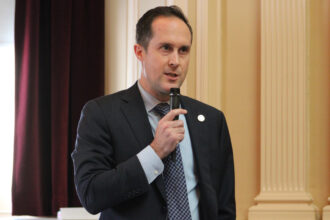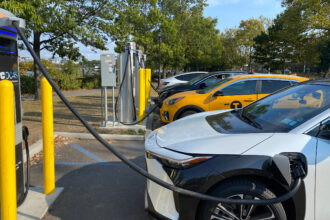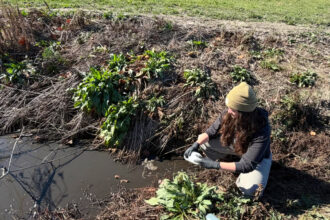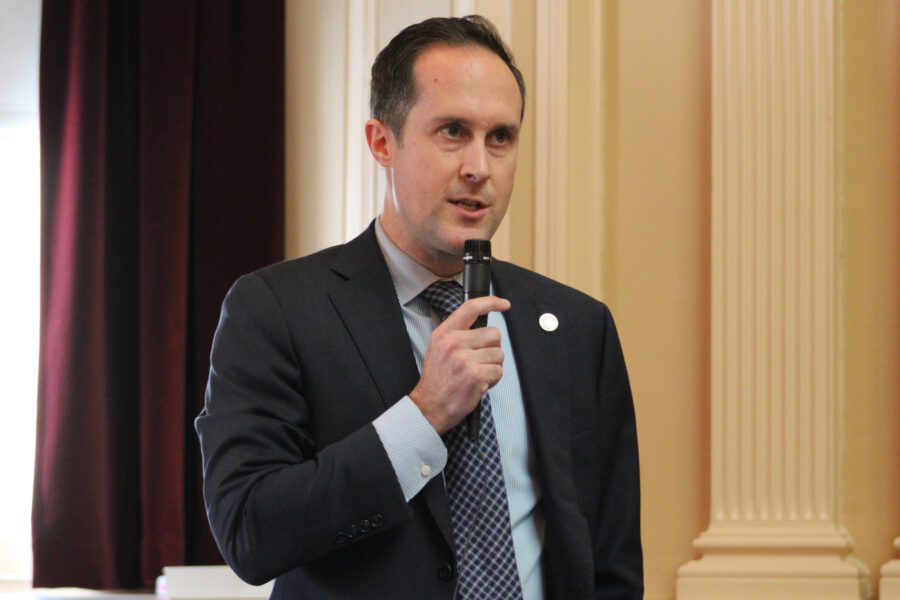Energy Companies Opened Wallets Wide to Sway Climate Bill (New York Times)
Electric utilities boosted lobbying in the second quarter of 2009, narrowing the gap with oil and gas companies that had dominated spending on persuasion by a wide margin earlier this year.
Slow Shift to Renewables Undermines UK Electric Rail Plan (Business Green)
Environmental groups are warning that, without a concerted shift to generate power from renewable energy sources, the UK government’s £1.1bn rail electrification scheme will have only a limited impact on greenhouse gas emission targets.
US House OKs $2 Billion for High-Speed Rail (Reuters)
High-speed rail projects would receive a $2 billion boost under a bill passed by the House. The money for high-speed, intercity rail projects was twice what President Obama requested and would come on top of $8 billion from the stimulus bill.
UN’s Ban Urges China to Step Up on Climate Change (AFP)
UN chief Ban Ki-moon called on China today to exercise greater leadership in world efforts to curb climate change, saying a new global framework deal cannot be reached this year without Beijing.
Judges Discuss Challenges of Climate Legislation (Monterey Herald)
If Waxman-Markey passes, it will no doubt keep federal judges very busy. "There will be a burgeoning amount of climate change legislation in the federal courts," said Richard Frank, director of the California Center for Environmental Law & Policy.
Healthcare Delay May Complicate Climate Debate (Reuters)
The U.S. Senate’s failure to hold to its early August deadline to pass a major healthcare bill could complicate another of President Barack Obama’s top policy priorities: the fight against climate change.
How Australian Opposition Wants Carbon Plan Changed (Reuters)
Australia’s opposition Liberal Party todayy outlined changes it wants in return for its support for the government’s controversial carbon trade laws.
New Generation Of Solar Cells Promises Efficiency (Science Daily)
The photovoltaics lab at the University of Luxembourg has produced its first thin film solar cells from compound semiconductors, already reaching 12% efficiency.
Germany Calls Carbon Tariffs ‘Eco-Imperialism’ (Reuters)
Germany called a French idea to impose "carbon tariffs" on products from countries that are not trying to reduce greenhouse gases a form of "eco-imperialism" and a direct violation of WTO rules.
Counting Imports, US Is Top Greenhouse Gas Emitter (Reuters)
The United States is by far the biggest greenhouse gas emitter ahead of China if consumers in rich nations are given responsibility for energy used to make imported goods, one expert says.
Is BMW’s Exploiting a Loophole with Electric Mini E? (Detroit News)
Some drivers who are paying $850 a month to lease the electric vehicles accuse BMW of exploiting California’s new zero-emissions law to get full credit for vehicles that will be on the road for only a year.
1850s Boston Home Heats Itself (CNet)
For all the complex solutions proposed to lower building energy use, Simon Hare has a project to demonstrate the power of simplicity in green buildings. The architect is turning an 1850 cottage in Boston’s Roxbury Crossing neighborhood into a passive home.
Power Simplicity: Kenyans Invent Bike Phone Charger (BBC)
Two Kenyan university students have invented a device that allows bicycle riders to charge their mobile phones. They used the dynamo that comes attached to the back wheel of some bikes to power headlights.
About This Story
Perhaps you noticed: This story, like all the news we publish, is free to read. That’s because Inside Climate News is a 501c3 nonprofit organization. We do not charge a subscription fee, lock our news behind a paywall, or clutter our website with ads. We make our news on climate and the environment freely available to you and anyone who wants it.
That’s not all. We also share our news for free with scores of other media organizations around the country. Many of them can’t afford to do environmental journalism of their own. We’ve built bureaus from coast to coast to report local stories, collaborate with local newsrooms and co-publish articles so that this vital work is shared as widely as possible.
Two of us launched ICN in 2007. Six years later we earned a Pulitzer Prize for National Reporting, and now we run the oldest and largest dedicated climate newsroom in the nation. We tell the story in all its complexity. We hold polluters accountable. We expose environmental injustice. We debunk misinformation. We scrutinize solutions and inspire action.
Donations from readers like you fund every aspect of what we do. If you don’t already, will you support our ongoing work, our reporting on the biggest crisis facing our planet, and help us reach even more readers in more places?
Please take a moment to make a tax-deductible donation. Every one of them makes a difference.
Thank you,











